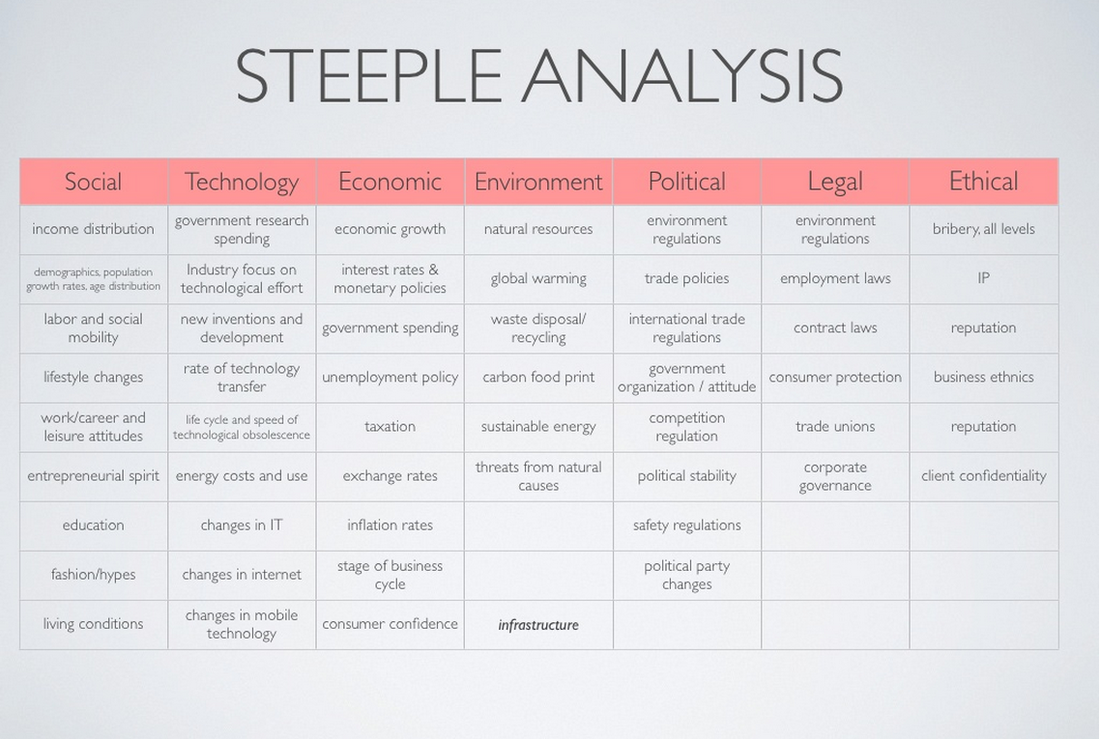1.5 The External Environment
What we will study?

By the end of this unit you should be able to:
- Explain different changes in the external environment that firms operate in
- Use STEEPLE analysis to examine the impact of the external environment on a firm
- Evaluate the impact on a firm's objectives and strategy of a change in any of the STEEPLE factors
STEEPLE stands for the various factors a firm needs to consider within the external environment it operates in - Social, Technological, Economic, Ethical, Political, Legal and Environmental. It is an analytic framework for examining factors in the firm's external environment that could affect or influence business objectives and strategies
SocialEconomic |
TechnologicalEthical |
Political |
Legal |
Ecological
What is the difference between political and legal factors?
First of all, political factors refer to the stability of the political environment and the attitudes of political parties or movements. This may manifest in government influence on tax policies, or government involvement in trading agreements. Political factors are inevitably entwined with Legal factors such as national employment laws, international trade regulations and restrictions, monopolies and mergers’ rules, and consumer protection. The difference between Political and Legal factors is that Political refers to attitudes and approaches, whereas Legal factors are those which have become law and regulations. Legal means something is compulsory with whereas Political may represent influences, restrictions or opportunities, but they are not mandatory.

